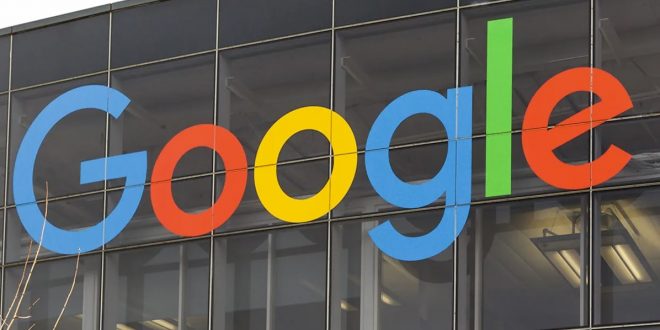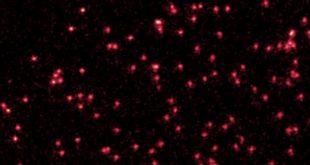Gmail’s creator predicts that within a year or two, the new chatbot ChatGPT will completely upend Google’s business, eradicating the search engine result page.
You have probably already encountered a few works produced by ChatGPT, a chatbot powered by artificial intelligence (AI) that can do anything from rewrite “Baby Got Back” in the Canterbury Tales style to simulate its own chatbot within a chatbot.
Open AI chatbot prompt: "Rewrite Baby Got Back in the Style of the Canterbury Tales."
Once upon a time in the land of Canterbury
A lady fair with a behind so hearty
Walked in the room with a waist so small
And a round thing in front of us all
… pic.twitter.com/D8Yqi7LbQp— Jonathan Stray (@jonathanstray) December 1, 2022
The chatbot, which went live last week, is surprisingly effective. Contrary to Google’s AI, it hasn’t yet persuaded anyone that it is sentient, but it has been effective enough to persuade a professor of history and technology that their student was paying attention in a seminar.
Although the student revealed it later, I did NOT notice anything wrong with the initial response. It was a good, intelligent seminar answer.
This can now be done live and routinely in university seminar discussions
I’m not even sure it’s a bad thing
— Jon Agar (@jon_agar) December 6, 2022
The bot can be used for a variety of tasks, such as writing functional code and spotting mistakes in code written by inexperienced humans.
Paul Buchheit, the engineer responsible for creating Gmail and Google’s now-deleted “don’t be evil” motto, was impressed by the responses to questions posed to it, as opposed to the results you receive for the same query from Google.
Google may be only a year or two away from total disruption. AI will eliminate the Search Engine Result Page, which is where they make most of their money.
Even if they catch up on AI, they can't fully deploy it without destroying the most valuable part of their business! https://t.co/jtq25LXdkj
— Paul Buchheit (@paultoo) December 1, 2022
The chatbot’s outstanding natural language processing is accomplished via a technique known as “reinforcement learning from human input.”
“A type of machine learning called reinforcement learning using human feedback includes training a model with input from a human user. Many other formats of feedback, such as a score or binary “right” or “incorrect” label, “When asked, ChatGPT responded to IFLScience with precise explanations.
“The model makes advantage of this input to develop new skills and enhance its performance. For instance, if a model is trained to categorize images of animals, a human user may evaluate the model’s performance by labeling each image as either “correct” or “incorrect.””
Since the system is now accessible to the general public, the model will receive a lot of feedback, which will help it become better.
“The model leverages the feedback it receives in order to fine-tune its internal settings and enhance performance. This iterative process continues until the model performs at a level that is suitable for the task, “The bot kept going.
“The ability for the model to learn from the distinctive perceptions and expertise of a human user is one of the main advantages of reinforcement learning from human feedback. This can aid the model in gaining a more complex knowledge of the problem and enhancing its performance in ways that conventional machine learning techniques might not be able to.”
All well, but how could this possibly compete with the dominant search engine Google? The issue for Google is that it could do away with the need for its main source of income, the search results page, in addition to giving more thorough results and explaining answers more naturally (as seen above).
When you enter a search term into Google, millions of natural results are displayed alongside adverts from businesses who have paid to be associated with particular keywords. Buchheit thinks the OpenAI chatbot has the potential to completely replace the search results page and, with it, a significant portion of Google’s revenue.
The URL/Search bar of the browser is replaced with AI that autocompletes my thought or question as I type it and also provides the best answer (which may be a link to a website or product), wrote Buchheit on Twitter. This is how Buchheit envisions the situation playing out.
“The AI will use the outdated search engine backend to compile pertinent data and links, which will then be summarized for the user. It’s similar to asking a trained human researcher to complete the task, except that AI will complete it in a fraction of the time.”
One thing that few people remember is the pre-Internet business that Google killed: The Yellow Pages!
The Yellow Pages used to be a great business, but then Google got so good that everyone stopped using the yellow pages.
AI will do the same thing to web search
— Paul Buchheit (@paultoo) December 1, 2022
Since the chatbot isn’t currently receiving real-time updates from the Internet, its knowledge is static. It’s also unclear whether that will be included in OpenAI’s plans for what appears to be ground-breaking technology.
“Big ideas still need to be discovered, and the field has a long way to go. We will make mistakes along the way and gain a lot of knowledge from dealing with reality. We occasionally make really poor decisions, and sometimes it will be messy. There will be times when we experience transcendent growth and value “Sam Altman, CEO of OpenAI, made the statement on Saturday during ChatGPT’s launch week.
The only safe course and the only way to give people, society, and institutions enough time to update and internalize what this all means, in my opinion, is iterative deployment.
 Tech Gadget Central Latest Tech News and Reviews
Tech Gadget Central Latest Tech News and Reviews




